The Case For Live Workshops
COVID necessitated isolation and made ZOOM a verb with a new
meaning. It also precipitated an accelerated and permanent shift to remote/hybrid work which does have advantages for individuals and organizations (convenience, independence, work from anywhere). But these are measures of efficiency, not effectiveness, and organizations are just starting to feel some of the negative consequences of an all-remote workforce.


